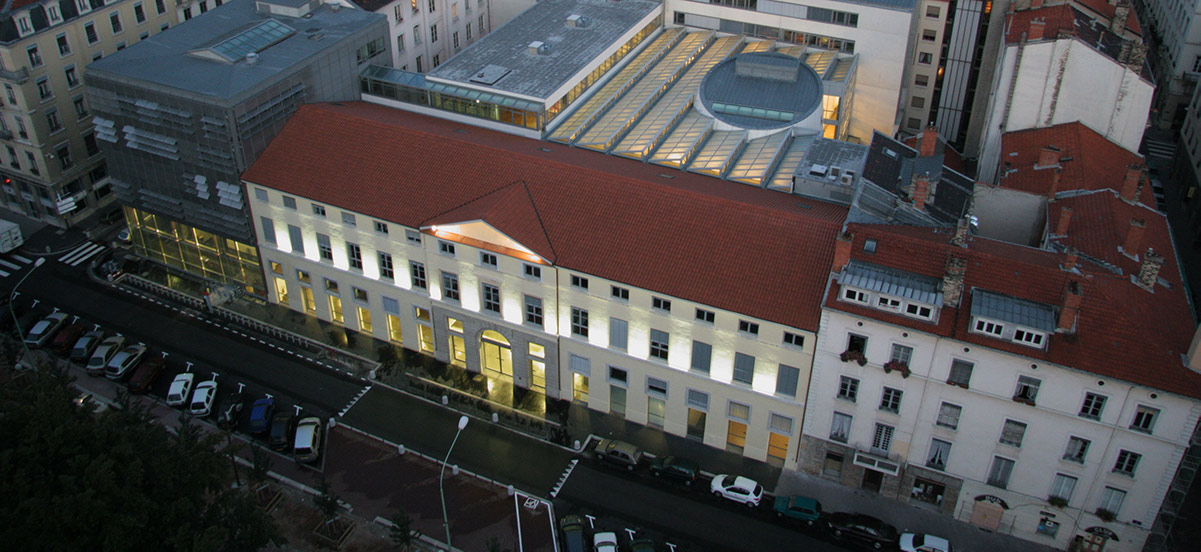The Faculty of Theology and Religious Sciences provides initial and continuing education for those in or aspiring to positions within the Catholic Church (such as seminarists, members of religious orders and diocesan staff) and anyone wishing to acquire a knowledge of Christian teaching in the academic tradition of the Catholic Church.
The Faculty has a large proportion of international students, mainly from Europe, Africa and Asia. The diversity of the students greatly enhances life in our institutes, creating melting pots not only of different cultures, but also of different personal statuses, ages and experiences, with a large number of students taking a course alongside or after a professional career.
It comprises two training institutes:
Department of Theology
Founded in 1878, the Department of Theology provides to 21 dioceses of south-eastern France, academic teaching in the various fields of theology: exegesis of biblical texts, fundamental and dogmatic theology, ethics, patristics (the study of early Christian writings), history of Christianity, spirituality and canon law. It currently has almost 1,000 students and non-assessed learners.
By pontifical right, it issues degrees under the authority of the Holy See (canonical degrees) whose standard is recognised by the French government. It also issues university diplomas and certificates.In conjunction with state universities, it also offers joint doctorates.
The ‘Theo en line’ programme enables hundreds of people to study at home at their own pace. Non-assessed learners can also follow any course of their choice.
The Department’s teaching staff provide expertise in ecclesiastical and, more broadly, social, ethical and religious matters. They work with colleagues in the Department of Philosophy to produce the academic journal Théophilyon. Its partnership with the Institute des Sources Chrétiennes, a research institute which publishes a collection of ancient Christian texts, makes the Department a place of excellence for patristics.
The Department is home to two specialist centres. The Christian Centre for Judaism Studies (CCEJ) seeks to increase the attention paid to the Jewish reality in Christian theology through teaching, study days and a documentation centre, while the Centre for the Study of Cultures and Religions (CECR) aims to promote better understanding of religious traditions and help create dialogue between them. It provides training and conducts research in how to handle religion in organisations.
The Department boasts three research chairs: the Christian Unity research chair for ecumenism, the Jean Rodhain research chair for teaching and studies on charity, and an Armenian studies research chair.
IPER
The Pastoral Institute for Religious Studies (IPER) is a university institute for theological and pastoral training which has evolved in step with changes in the Church and society. Originally founded, in 1946, it served as a school catering for the needs of ‘professional’ catechists in the Church. In 1971, it became a university institute, preparing those with a calling for pastoral work in various fields and issuing university diplomas.
In 2019, in a natural progression, IPER started to offer recognised vocational qualifications with a ‘Pastoral Project Leader’ course approved by the Ministry of Labour. This initiative, undertaken jointly with the other Catholic universities, helped to structure the skills required for professions in the Church and to integrate project management, team leadership and the provision of personal support into the training provided.
IPER caters for committed baptised people of all ages, backgrounds, statuses and callings who share a common goal: to better serve Christ's gospel through a structuring course combining personal, intellectual, interpersonal and spiritual development. They can call on a management team, academic teaching staff and trainers from the ecclesiastical and professional worlds.

